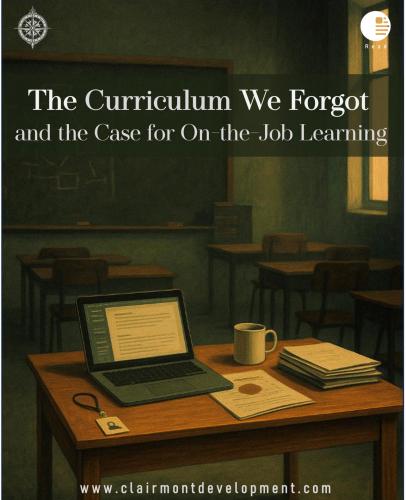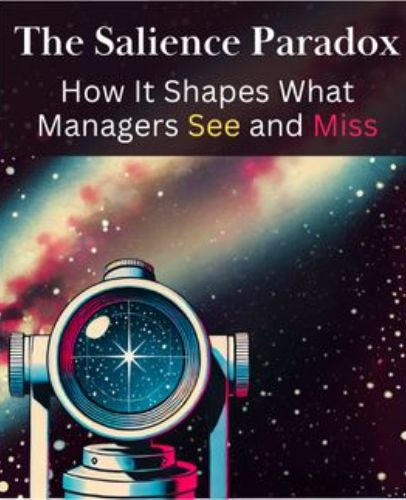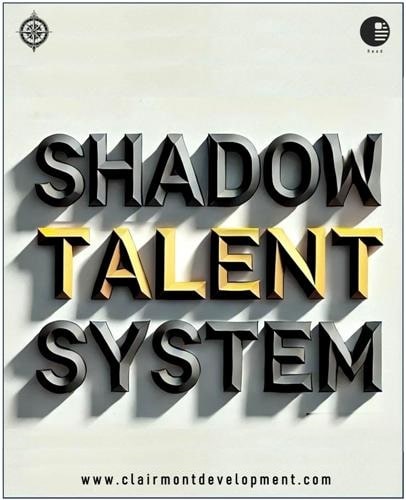A look toward the past… one company’s effort to develop the whole individual.
As we all are working to prepare ourselves for the Fourth Industrial Revolution, I thought it would be interesting to have a look at how the AT&T corporation created a training program in the 1950s to educate their managers as job specialization and the use of technology were on the rise.
“Job specialization was one way to manage the growth of information, and the corporate world began to require graduates with specialized degrees and narrow areas of expertise. College curricula gradually changed to meet these needs of business by offering new advanced and more specialized course work for their students. In order to make room for these courses, general liberal arts classes in history, literature, and art were eliminated from degree requirements.” – Mark Bowels
The title of an article that I recently read was The Organizational Man Goes to College: AT&T’s Experiment in Humanistic Education, 1950-1960. It was written by Mark Bowels and appeared in the publication The Historian in 1998. In the article, he reviews a training experiment that was done in the 1950s by the AT&T Corporation for their mid-level managers.
Job specialization was a strategy to address the growth of information that corporations were starting to realize due to the increased use of technology during the first half of the twentieth century. This caused concern as the individuals continued to grow and take on larger roles in the organization, that they would lack the depth of a full educational background due to their specializations. The concern was that, in their specialized education, they may have missed subjects that pertained to the sense of individuality which is often needed in leadership.
This led to the design of the experiment by AT&T. They were not strangers to the commitment of developing their workforce. From the later parts of the nineteenth century where they supported their workers during workforce capitalization, through the 1920s when they were early adopters of working with universities to provide training. In fact, AT&T had a close relationship with Philip Cabot, a Harvard Business School professor, that held “Cabot Weekends” with the organization to address contemporary business concerns as a part of their training efforts. As a result, AT&T was eager to take on this new initiative.
The plan was simple in its mission: “prepare executives to maintain economic prosperity by broadening their cultural awareness and promoting independent thinking” by introducing their managers to the humanities. It is important to say that AT&T believed that the humanities would help them solve a business problem they were facing and not just because they felt that the subjects were “neat. In a partnership with the University of Pennsylvania the program became known as the Institute of Humanistic Studies of the Executive. Selected participants would take part in a nine-month program focused on philosophy, literature, arts, and science. This was intended to help them become stronger individuals and in turn independent leaders.
The program ran for 7 years with 139 participants who were chosen based on their high potential and likely candidates for executive roles. The program consisted of 4 sections: Philosophy, Art, Science and Literature. The philosophy section focused on methods of critical thinking along with social and ethical values. The literature portions included studying the works of James Joyce and other authors. The art section looked at topics such as history, city planning, and architecture. Lastly, the science section was divided into three areas of physical, social, and historical. The curriculum was a mix of lectures, discussions, and seminars, also trips to museums, concerts, and other cultural activities.
Let’s look at the results? Well, it is hard to say what was the impact. As with most executive training, attribution can be challenging. Who is to say that a negotiation a participant engages in post training yield better results due to a visit to a museum?
However, it is always important to determine the success of any training program. To do this, AT&T worked with Morris Viteles a professor at the University of Pennsylvania as the chief evaluator of the program. He claimed that through the review of the program those managers had begun to think independently, and it had “produced substantial outcomes in the way of persisting modification of attitudes and–of even greater significance–in influencing the decision making and action in the business.” When considering the impact on the business, it was clear that the participants of the program had in fact experienced growth as it was related to their positions within the organization as many were promoted in the following years.
I feel that the core of the program can be summed up by a comments of a professor found in one of the early reports “in these days of specialization there is a need to help the professional man make sound discussion. Computers would relieve managers of time-consuming, routine decisions and guide you better than you’ve ever been guided before in making big decisions”.
The program was further reviewed in 1957 by the outside firm of Douglas Willaims Associates. There were several studies and interviews done of the participants, supervisors, subordinates, and even their spouses. The results were mixed and did not supply conclusive evidence to support the program. In the end, there were organizational changes and the program lost support and was ended. While we focused on AT&T’s efforts, they were not alone. There were several more attempts to address this need around the same time, including a book in 1958 by Peter Siegle titled New Direction in Liberal Education for Executives. In the book, he outlines other programs that were a derivative of the UPenn program along with other independent approaches to the topic.
Nearly seventy years later and we are still struggling with some of the same issues. If you look at recent surveys or the itineraries of talent development conferences, the focus is on digital transformation. This is often addressed as “future proofing” or “future preparing” employees for the Fourth Industrial Revolution. It often is supported by training programs on how best to use the new technologies and tools that are available to employees to help them automate their current jobs. I think it is extremely important and critical for individuals to prepare themselves. While there is a focus on those skills, I can’t help but wonder if there is still a place for the humanities in today’s corporate education?
I must admit that the humanities subjects have not come up often in the context of corporate training in much of my experience. There are elements that get covered but are often paired with other topics like game theory or even negotiations, but they do not take the center stage. The prevailing thought in corporate education is to train individuals on how to do a job instead of having them do book reports on classic literature. Without a clear linkage between adding the humanities to the training offerings and on-the-job performance, many organizations would be hesitant to engage in such an experiment. As the focus should be on how we develop the whole of the individual to be in the best position to excel in their current and future roles, I would encourage us to be open to exploring all avenues. I would love to get your thoughts on the AT&T experiment…







It is really an academic article. Thanks for sharing.